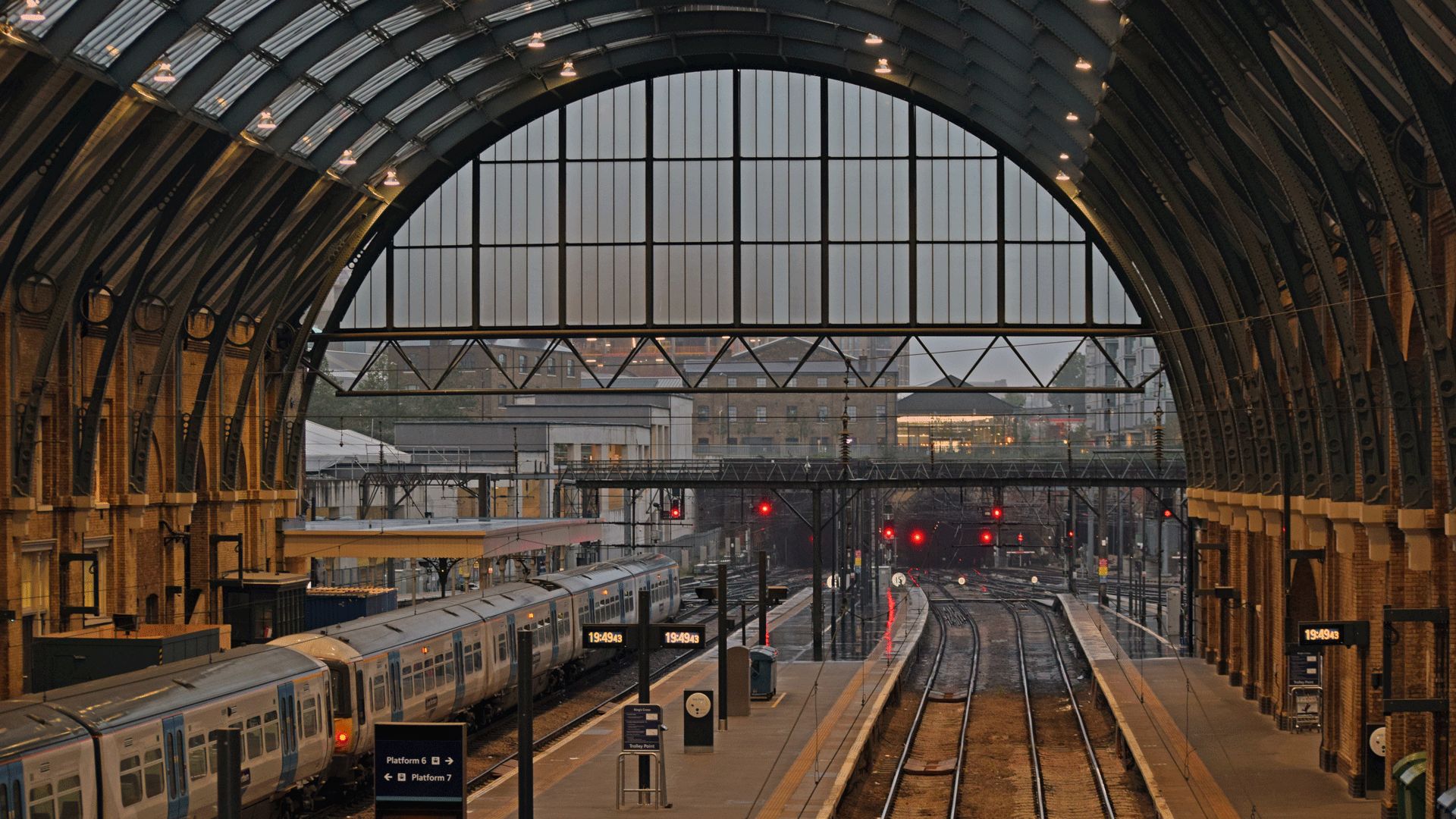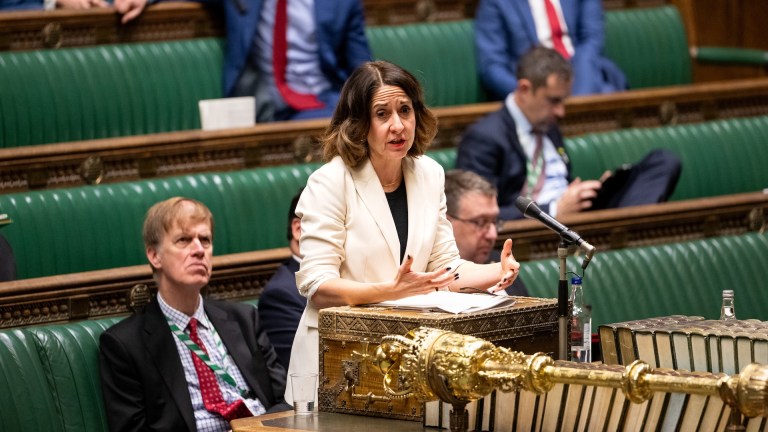So what’s going on – and will voters punish the government for their misery on the rails?
When are the latest Tube and train strikes?
ASLEF Tube drivers will conduct two days of strikes, walking out on Monday 8 April and Saturday 4 May.
Meanwhile, drivers across the country will conduct three days of ‘rolling’ regional walkouts at Avanti West Coast, East Midlands Railway, West Midlands Trains, CrossCountry, Chiltern, GWR, LNER, Northern, TransPennine Trains, c2c, Greater Anglia, GTR Great Northern Thameslink, Southeastern, Southern/Gatwick Express, South Western Railway main line and depot drivers, and SWR Island Line.
You can find more information about when and where the strikes are taking place here.
Why are Tube and train strikes happening?
All of the disputes revolve around pay and working conditions, but the demands and the parties to the dispute differ between London and on the mainline services.
Tube drivers are engaged in a “long running dispute” with Transport for London (TfL) over working conditions, said Finn Brennan, a London organiser for ASLEF.
Advertising helps fund Big Issue’s mission to end poverty
It says that existing pay offers have been accompanied by unacceptable sacrifices to working conditions, such as “spending up to 25% more time in the cab.”
“Despite a previous commitment to withdraw plans for massive changes to drivers’ working conditions, London Underground management has established a full-time team of managers preparing to impose their plans,” Brennan said.
TfL said it had “no plans to impose these changes” and had “committed to no one losing their job as part of these changes.”
“We have been in long-term discussions with our trade union colleagues on how to modernise procedures and processes on London Underground to improve the experience both for staff and customers,” it said.
But the union are hoping that industrial action will force TfL’s hand, and stop any pay rises being accompanied by any reduction in the quality of work conditions.
It’s worked before: In January, RMT Tube workers called off strikes after negotiations netted the lowest paid workers an 8-10% pay rise. Higher paid workers will get a 5% rise.
Advertising helps fund Big Issue’s mission to end poverty
Why are the mainline train drivers striking
Meanwhile, the mainline drivers are also striking for better pay. ASLEF say that wages have stagnated since 2019 – before the cost of living crisis spiked inflation to record levels.
In April 2023, the union’s executive committee rejected a 4% pay rise for two consecutive years.
In the most recent ballot, some 98% of ASLEF drivers voted to strike, with a turnout of 70%. ASLEF’s Whelan described this as an “overwhelming” mandate.
“Those votes show – yet again – a clear rejection by train drivers of the ridiculous offer put to us in April last year by the Rail Delivery Group,” he said.
The Rail Delivery Group – the group representing Britain’s train operators – have offered a “one size fits all” package for all 16 operators, ASLEF claims; for example, requiring drivers at every operator to work compulsory Sundays, even though some operators already have this requirement and drivers are compensated for it.
A spokesperson for Rail Delivery Group apologised for the disruption and promised to try keep “as many trains running as possible.”
Advertising helps fund Big Issue’s mission to end poverty
The RDG is not solely to blame, says Whelan. The buck stops with the government, because the Department for Transport sets the amount of pay that operators can offer train drivers.
But since the April 2023 offer was rejected, the DFT have not come to the negotiating table.
“‘We have given the government every opportunity to come to the table but it is now clear they do not want to resolve this dispute. They are happy for it go on and on,” said Whelan.
“We asked [transport minister] Mark Harper to come and meet us. We asked the RDG and the TOCs [Train Operating Companies] to come and talk to us. We said, ‘Let’s sit around the table and negotiate.‘ Because you say you don’t want any more industrial action, and we don’t want to disrupt the rail network, but the Tories and the TOCs have given us no choice.”
Why is the government’s new anti-strike law not being enforced?
The Tory government have been unsympathetic to striking train drivers so far. Rather than negotiating with striking workers, they’ve legislated to make striking harder.
The anti-strikes bill passed last year forces workers in sectors like health, rail, education, and fire and border security sectors to maintain a skeleton service – 40% of train services, for example.
Advertising helps fund Big Issue’s mission to end poverty
Yet the companies in charge of enforcing these minimum service laws have not yet been able to do so. Only one train operator, LNER has taken clear steps towards using minimum service level (MSL) regulations, a union source explained. However, ASLEF responded by calling five additional days of strikes in January and LNER backed down.
Trade Union Congress general secretary Paul Nowak previously described the law as “unworkable” – a description this outcome seems to vindicate.
What does all this mean for the general election?
The government has a clear incentive to return to the negotiating table – voters are sick of strikes. According to the new Institute for Public Policy Research (IPPR), they’re also sick of strikes being politicised.
More than half of the British public (53%) think having public transport to and from work is a necessity and more than a third (35%) say the same about public transport to see family and friends, compared to just one in five who see a car as essential (20%). Public transport to work is also rated more crucial than having a phone (46%) and access to the internet (43%).
However, the government has been reluctant to prioritise public transport – demonising striking workers and, according to Stephen Frost, principal research fellow at IPPR, turning transport into a culture war.
“Rhetoric from the prime minister fabricating a ‘war on motorists’ over the last few months has been incredibly unhelpful. In reality, we know that even the most regular drivers also get on buses and trains and benefit from safer streets to walk, wheel and cycle,” he said.
Advertising helps fund Big Issue’s mission to end poverty
“So it is crucial those in Westminster stop treating transport as a culture war issue and start delivering on the people’s priorities. This polling reveals those priorities as clear and simple, they want public transport that works for more people, and they want to make decisions on transport locally. The party that makes that offer the clearest will benefit at the ballot box.”
With the Rishi Sunak’s government doubling down on their anti-strikes agenda and unions refusing to budge, it’s unlikely miserable commuters will see an end to strikes before the next general election.










